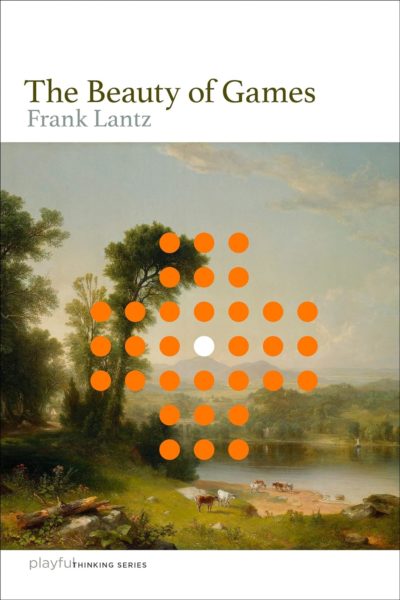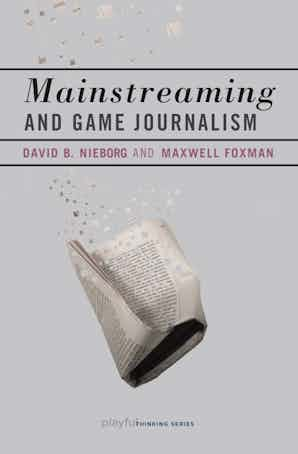20th Anniversary notes on The Game, the Player, the World: Looking for a Heart of Gameness.
What is a Game?
What is a game? Early in my career, people wanted to know, but should I try to respond? In The Game, the Player, the World: Looking for a Heart of Gameness I tried to give an answer that was attentive to the ways we use the word “game”, open to change, and useful for generating new kinds of games. I presented the paper as a keynote talk at 2003 DiGRA conference in Utrecht, an early career highlight for me.
What is a game? Many people had already tried to answer the question and I had read many previous game definitions. Though I thought the paper was comprehensive, it turned out that I had overlooked writers like Celia Pearce and Clark C. Abt, but I felt that the previous definitions shared difficulties both in dealing with history and with the difference between games and other structured activities, such as going to the university.
What is a game? I wanted to answer this by examining points of contention about what we consider, or don’t consider, a game – that is, I made descriptive definition of how the category of games functions, rather than a static and prescriptive one.
Technically, I think the paper did three things that were different than previous attempts. (It is entirely possible that all makers of game definitions consider themselves unique.)
- To account for change and to be open to new experiments coming along, the paper describes a classic game model, and shows how video games are moving beyond that model.
- My definition is a cluster definition where I show how removing different components will give different changes, such that it becomes open to examine borderline cases and change. For example, with the continued growth of persistent games with RPG-like stats that remain over time – think all mobile games – “outcome” now feels less central to games than it did in 2003.
- Where previous writers had argued about whether games were productive or unproductive, I say that games are really defined by this discussion, by the fact that we can negotiate the consequences of playing.[1]
Changing Meaning in Real-time
Reading the text again, it is striking that three terms have changed meaning during the intervening twenty years:
Telephone: A student asked me why the paper states that telephones aren’t used for playing games, since this seems to be common today. A good question, but at the time of writing, “telephone” meant a landline phone. We did have mobile phones and we played games on them, but not on landline “telephones”.
Hypertext fiction: In 2003, “Hypertext Fiction” referred to experimental literature such as Shelley Jackson’s Patchwork Girl. I discuss in Handmade Pixels how 1990s hypertext fiction writers felt it important that, to be taken seriously, their works were not considered games, and in this paper, I respect that and place them outside the classic game circle. Yet appearing during the 2010s, the genre of Twine games had some surface similarities to Hypertext Fiction, but were either structured as games, or referred to game conventions (sometimes by rejecting them). Though Twine games are sometimes also called “hypertext fiction”, I always argue that Twine games are games.
Game: Much experimental work eschewed the “game” label twenty years ago, perhaps because it sounded unserious, but today we have much more work that tries to make games into something new, and my original paper did fully not anticipate Modern Art-like strategies of working in the game tradition by strongly breaking with that tradition. I think experimental game work can exist in part because some of the stigma of “games” has disappeared, and while – as I note in the paper – games such as SimCity were originally not classed as game by the creator, there is now widespread agreement that a game can be an open-ended simulation that does not need to tell you what is good or bad (“valorization of outcomes”), and that game form can also serve to deliver fixed experience over which you have minimal control and responsibility as a player (“player attached to outcome”), as with the walking simulator genre. Game, or especially video game, can now stand for any audiovisual experience with player input.
Pedagogy
I work from the assumption that it is easier to break the rules if you know them, so I expose students to conventions in different genres and ways to break them, so that students can decide how (and if) they want their games to be experimental.
How I use The Game, the Player, the World in teaching: I find the article useful for teaching, both to get students to see themselves as active thinkers about theory and games, and for creating new ideas:
- I start by asking students to come up with their own game definitions in groups, then present it to other groups who try to identify when a definition is too narrow or too broad. This gives us a shared sense of what is strange or difficult about games.
- I show recent games which challenge the classic game model and/or the student definitions.
- I ask the students to create an almost-not-a-game for the next session – anything that they would be unsure whether to call a game.
- We play these games and discuss what they make us think about the cultural category of games, and how thinking about conventions can be productive for coming up with new ideas.
The Game, The Player, the World taught me that it can be productive to examine fundamental questions, but often by providing different kinds of answers than expected.
[1] I think this was inspired by Todorov’s account of The Fantastic in literature.
PS. I still don’t think Wittgenstein said anything profound about games specifically (or about Spiele). I read him as making a much broader point – that we cannot assume that a given word has a clearly delineated meaning, which is clearly true. Unfortunately, he is usually invoked to avoid examining the complex meanings of a word, especially the word game.




 play—and how its deceptively wholesome image has harmed and erased people of color.
play—and how its deceptively wholesome image has harmed and erased people of color.